 W
WFisheries law is an emerging and specialized area of law. Fisheries law is the study and analysis of different fisheries management approaches such as catch shares e.g. Individual Transferable Quotas; TURFs; and others. The study of fisheries law is important in order to craft policy guidelines that maximize sustainability and legal enforcement. This specific legal area is rarely taught at law schools around the world, which leaves a vacuum of advocacy and research. Fisheries law also takes into account international treaties and industry norms in order to analyze fisheries management regulations. In addition, fisheries law includes access to justice for small-scale fisheries and coastal and aboriginal communities and labor issues such as child labor laws, employment law, and family law.
 W
WAll the Fish in the Sea: Maximum Sustainable Yield and the Failure of Fisheries Management is a 2011 book by Carmel Finley. The book argues that the policies for international fishing and whaling management were essentially locked in place by 1958, and that the United States played a large role in setting them. In the development of the international law covering fisheries, the US supported laws that would protect the US tuna and salmon fisheries while limiting the ability of other nations, and Japan in particular, to fish in US waters. The book thus ties fisheries management inseparably with Cold War politics.
 W
WThe Canada–France Maritime Boundary Case was a dispute between Canada and France that was decided in 1992 by an arbitral tribunal created by the parties to resolve the dispute. The decision established the extent of the Exclusive Economic Zone of the French territory of Saint Pierre and Miquelon.
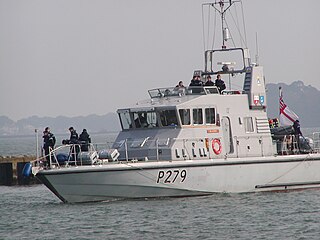 W
WThe 1993 Cherbourg incident were a series of maritime incidents which took place from 26 March to 2 April 1993 between the British Royal Navy and French fishermen as a result of a fishing rights dispute in and around the Channel Islands waters.
 W
WCod fishing in Newfoundland was carried out at a subsistence level for centuries, but large scale fishing began shortly after the European discovery of the North American continent in 1492, with the waters being found to be preternaturally plentiful, and ended after intense overfishing with the collapse of the fisheries in 1992.
 W
WThe Common Fisheries Policy (CFP) is the fisheries policy of the European Union (EU). It sets quotas for which member states are allowed to catch each type of fish, as well as encouraging the fishing industry by various market interventions. In 2004 it had a budget of €931 million, approximately 0.75% of the EU budget.
 W
WThe Comprehensive Economic and Trade Agreement (CETA) is a free-trade agreement between Canada and the European Union. It has been provisionally applied, thus removing 98% of the preexisting tariffs between the two parts.
 W
WThe Ending the Captivity of Whales and Dolphins Act is an act of the Parliament of Canada. Passed into law in 2019, the Act bans the capture and keeping in captivity of cetaceans. There is a grandfather clause for cetaceans in captivity when the law first came into force, and other exceptions, such as where a provincial government has issued a licence to keep cetaceans for research purposes.
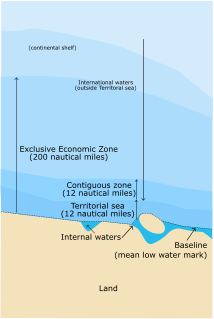 W
WAn exclusive economic zone (EEZ) is a sea zone prescribed by the 1982 United Nations Convention on the Law of the Sea over which a sovereign state has special rights regarding the exploration and use of marine resources, including energy production from water and wind. It stretches from the baseline out to 200 nautical miles (nmi) from the coast of the state in question. In colloquial usage, the term may include the continental shelf. The term does not include either the territorial sea or the continental shelf beyond the 200 nmi limit. The difference between the territorial sea and the exclusive economic zone is that the first confers full sovereignty over the waters, whereas the second is merely a "sovereign right" which refers to the coastal state's rights below the surface of the sea. The surface waters, as can be seen in the map, are international waters.
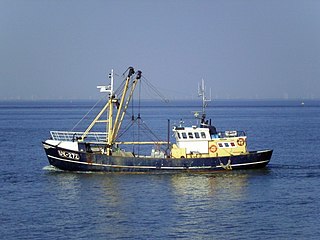 W
WR v Secretary of State for Transport was a judicial review case taken against the United Kingdom government by a company of Spanish fishermen who claimed that the United Kingdom had breached European Union law by requiring ships to have a majority of British owners if they were to be registered in the UK. The case produced a number of significant judgments on British constitutional law, and was the first time that courts held that they had power to restrain the application of an Act of Parliament pending trial and ultimately to disapply that Act when it was found to be contrary to EU law.
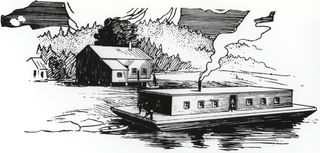 W
WCanada (AG) v British Columbia (AG), also known as the Reference as to constitutional validity of certain sections of The Fisheries Act, 1914 and the Fish Canneries Reference, is a significant decision of the Judicial Committee of the Privy Council in determining the boundaries of federal and provincial jurisdiction in Canada. It is also significant, in that it represented a major victory in the fight against discrimination aimed at Japanese Canadians, which was especially prevalent in British Columbia in the early part of the 20th century.
 W
WA fish market is a marketplace for selling fish and fish products. It can be dedicated to wholesale trade between fishermen and fish merchants, or to the sale of seafood to individual consumers, or to both. Retail fish markets, a type of wet market, often sell street food as well.
 W
WThe Fisheries Act 1983 is an Act of Parliament in New Zealand. An important provision of the Act was establishing the Quota Management System, one of the first individual fishing quota systems. The Act was largely repealed with the passage of the Fisheries Act 1996.
 W
WThe Fisheries Act 1996 is a New Zealand Act of Parliament. It is divided into five areas: recreational, customary, environmental, commercial and international fishing. It is currently administered by the Ministry of Primary Industries, but was originally administered by the Overseas Investment Commission and the Ministry of Fisheries. The Act mostly deals with the minimum size requirements and maximum quantity limit for each species of fish and seafood before they can be caught for selling or consumption.
 W
WA fishing license (US), fishing licence or fishing permit is a regulatory or legal mechanism to control fishing. Licensing is one mechanism of fisheries management and may be required for either commercial or recreational fishing.
 W
WThe Gulf of Maine has been fished since the 1700s, and has been a historic fishing area since. Climate change is having significant impacts on this ecosystem; between 2004 and 2013, the Gulf of Maine has warmed faster than 99.9% of the global oceans, increasing average temperature by 2 °C (3.6 °F). Having seen the depletion of groundfish stocks starting in the early 1990s, managers took care to create five closure areas in the Gulf of Maine.
 W
WHigh Seas Driftnet Fisheries Enforcement Act of 1992 is United States declaration citing an observance of the United Nations international driftnet fishery conservation program to restrict large scale driftnet fishing in high seas or international waters. The Act of Congress acknowledges the United Nations General Assembly Resolutions imposing a global moratorium on all high seas driftnet fishing by December 31, 1992. In accordance with Title 16 section 1857, the United States federal law 102-582 proclaims the Magnuson–Stevens Fishery Conservation and Management Act prohibits the application of large scale driftnet fishing within an exclusive economic zone of any sovereign state and the United States.
 W
WThe Magnuson-Stevens Act Provisions is necessary to help compliance the requirements of the MSA to end and prevent overfishing, rebuild overfished stocks, and achieve maximum yield
 W
WThe Magnuson–Stevens Fishery Conservation and Management Act (MSFCMA), commonly referred to as the Magnuson–Stevens Act (MSA), is the legal provision for promoting optimal exploitation of U.S. coastal fisheries. Enacted in 1976, it has since been amended in line with sustainability policy.
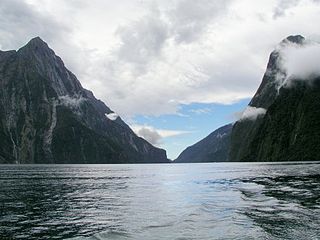 W
WMarine protected areas (MPA) are protected areas of seas, oceans, estuaries or in the US, the Great Lakes. These marine areas can come in many forms ranging from wildlife refuges to research facilities. MPAs restrict human activity for a conservation purpose, typically to protect natural or cultural resources. Such marine resources are protected by local, state, territorial, native, regional, national, or international authorities and differ substantially among and between nations. This variation includes different limitations on development, fishing practices, fishing seasons and catch limits, moorings and bans on removing or disrupting marine life. In some situations, MPAs also provide revenue for countries, potentially equal to the income that they would have if they were to grant companies permissions to fish.
 W
WThe Merchant Shipping Act 1988 c.12 was an Act of Parliament of the United Kingdom. It aimed to prevent foreign fishing fleets from fishing in British territorial waters. In the Factortame case, its provisions in Parts I and II, Registration of British Ships, were disapplied by the House of Lords when they were found to conflict with European Community law and the Common Fisheries Policy. Part II dealt only with fishing vessels and was found to be repugnant by the European Court of Justice. The subsequent definition of British Ships is found in the Merchant Shipping Act 1995.
 W
WThe Merchant Shipping Act 1995 is an Act of Parliament passed in the United Kingdom in 1995. It consolidated much of the UK's maritime legislation, repealing several Acts in their entirety and provisions in many more, some dating back to the mid-nineteenth century. It appoints several officers of Admiralty Jurisdiction such as the Receiver of Wreck. The Act of 1995 updates the prior Merchant Shipping Act 1894. The lead part on British ships was impacted by the outcome of the Factortame case, as the Merchant Shipping Act 1988 was impugned by the Common Fisheries Policy.
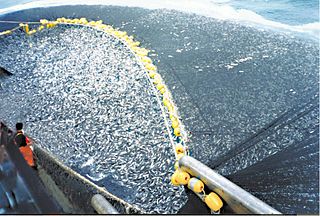 W
WOverfishing is the removal of a species of fish from a body of water at a rate that the species cannot replenish, resulting in those species becoming underpopulated in that area. In a Food and Agriculture Organization of the United Nations 2018 report, the FAO estimates that one-third of world fish stocks were overfished by 2015. Over 30 billion euros in public subsidies are directed to fisheries annually.
 W
WThe Pacific Salmon Commission is a regulatory body run jointly by the Canadian and United States governments. Its mandate is to protect stocks of the five species of Pacific salmon. Its precursor was the International Pacific Salmon Fisheries Commission, which operated from 1937 to 1985. The PSC enforces the Pacific Salmon Treaty, ratified by Canada and the U.S. in 1985.
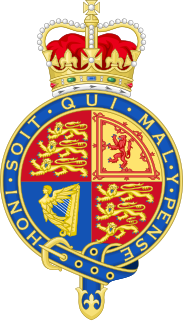 W
WThe Provincial Fisheries Reference was a lawsuit decided in 1898 by the Judicial Committee of the Privy Council (JCPC). It arose from a government turf war in Canada over the jurisdictional boundaries of property rights in relation to rivers, lakes, harbours, fisheries, and other cognate subjects. The 12-page judgment was delivered by Lord Hershell, and followed on from R v Robertson (1882). This case in the JCPC was an amalgamation of three separate Supreme Court of Canada appeals, which were grouped into one because of their similarities. The judgment broke little ground, and can be considered a ringing affirmation of the Strong court.
 W
WThe Salmon Act of 1986 is a United Kingdom act which outlines the difference between legal and illegal salmon fishery, among other things. It also technically makes it illegal to "handle salmon in suspicious circumstances". The Act defines what "suspicious circumstances" are, however.
 W
WThe Sea Fisheries (Shellfish) Amendment (Scotland) Act is an Act of the Scottish Parliament which amends section 7(4) of the Sea Fisheries (Shellfish) Act 1967 in respect of rights of several fishery.
 W
WThe Sustainable Fisheries Act of 1996 is an amendment to the Magnuson-Stevens Fishery Conservation and Management Act, a law governing the management of marine fisheries in the United States. Another major amendment to this legislation was later made under the Magnuson-Stevens Fishery Conservation and Management Reauthorization Act of 2006. The SFA was enacted to amend the outdated MSFCMA of 1976. The amendment included changes to the purpose of the act, definitions, and international affairs, as well as many small changes.
 W
WThe term territorial waters is sometimes used informally to refer to any area of water over which a state has jurisdiction, including internal waters, the territorial sea, the contiguous zone, the exclusive economic zone and potentially the continental shelf. In a narrower sense, the term is used as a synonym for the territorial sea.
 W
WThe Turbot War was an international fishing dispute and bloodless conflict between Canada and Spain, and their respective supporters.